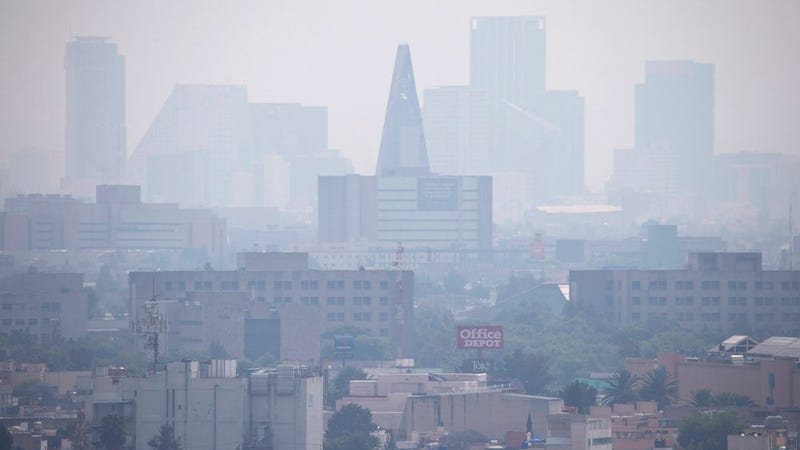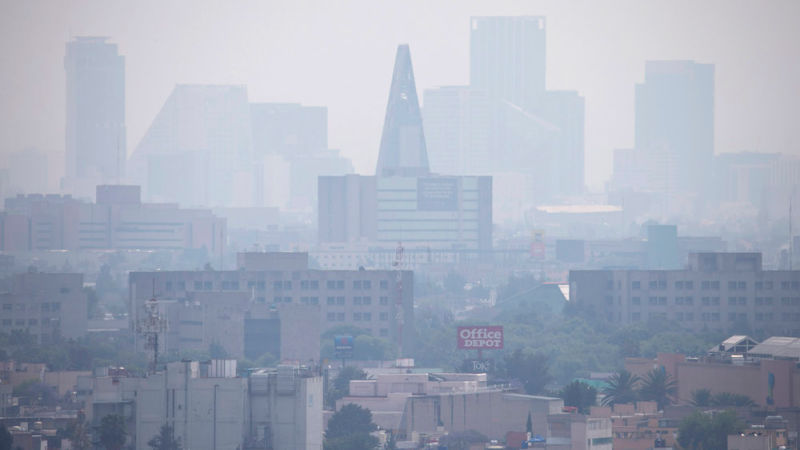
A plan to restrict private vehicles from Mexico City’s downtown hasn’t done enough to reduce air pollution, so the city is now asking twice as many cars to stay off the roads.
As a sprawling city at a soaring altitude, Mexico City is prone to intense smog because it’s surrounded by mountains, which trap particulate matter in what are called inversions. But it has gotten much worse in recent weeks, with ozone levels in particular skyrocketing to 1.5 times what is considered healthy, forcing the city to draw up new restrictions that went into effect last Monday.
The first idea was to prevent cars from driving into the city center one day of every work week and one Saturday a month, to be determined based on license plate numbers. But after two days, pollution rates did not drop significantly enough, so the city changed the restrictions to take double the number of cars—about two million—off streets today.
Advertisement
Besides the standard complaints about these kinds of bans—people find ways to circumvent them, including buying a second car—Mexico City residents are mad that their cars are banned regardless of their fuel efficiency or emissions rating (although electric and hybrid cars are always exempt). For years Mexico City has had a simple rule: If your car passed an emissions test, you could pretty much drive unrestricted. But this has been a big struggle for the city as giving more access to newer, more expensive cars is seen as an equity issue. A ruling that went all the way to Mexico’s supreme court declared that discriminating against the owners of older cars for these types of bans is unconstitutional. In fact, Mexico City’s ban could probably be more effective if it specifically targeted trucks, buses, and other fleet-based vehicles, which are often much older and dirtier than private automobiles.
Predictably, the city’s public transit system was strained by the ban, which pointed to bigger infrastructural issues like Delhi faced during its recent car bans. But the city claimed it was making bigger, long-term changes to both transportation and manufacturing (factories also contribute to smog). The ban will likely be in effect until the end of June, when wetter weather means clearer skies.
Sponsored
[WSJ]















